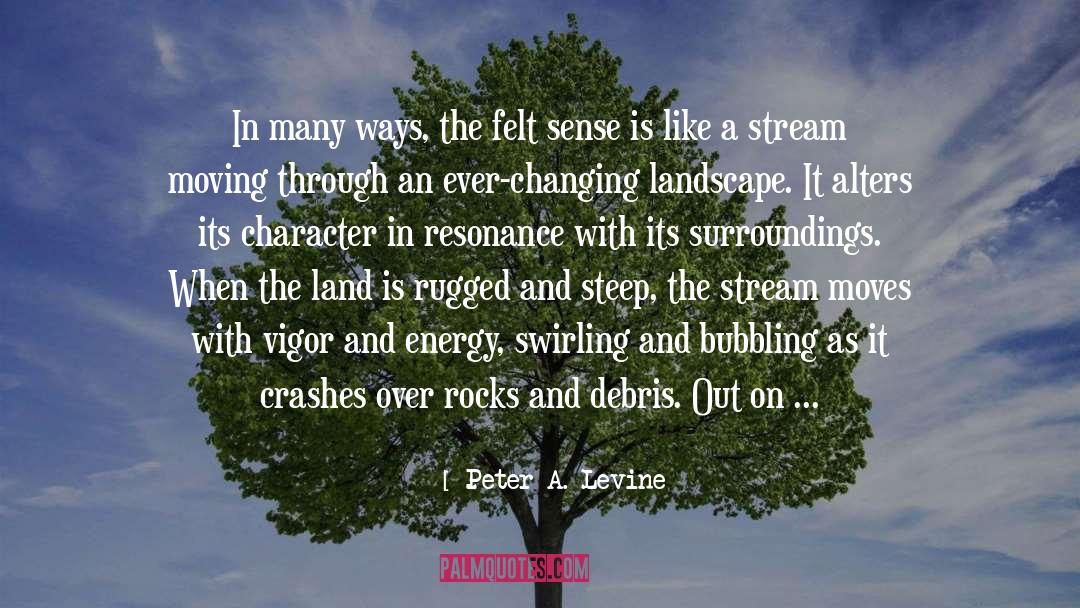Peter A. Levine Famous Quotes
Reading Peter A. Levine quotes, download and share images of famous quotes by Peter A. Levine. Righ click to see or save pictures of Peter A. Levine quotes that you can use as your wallpaper for free.
Trauma is hell on earth. Trauma resolved is a gift from the gods.
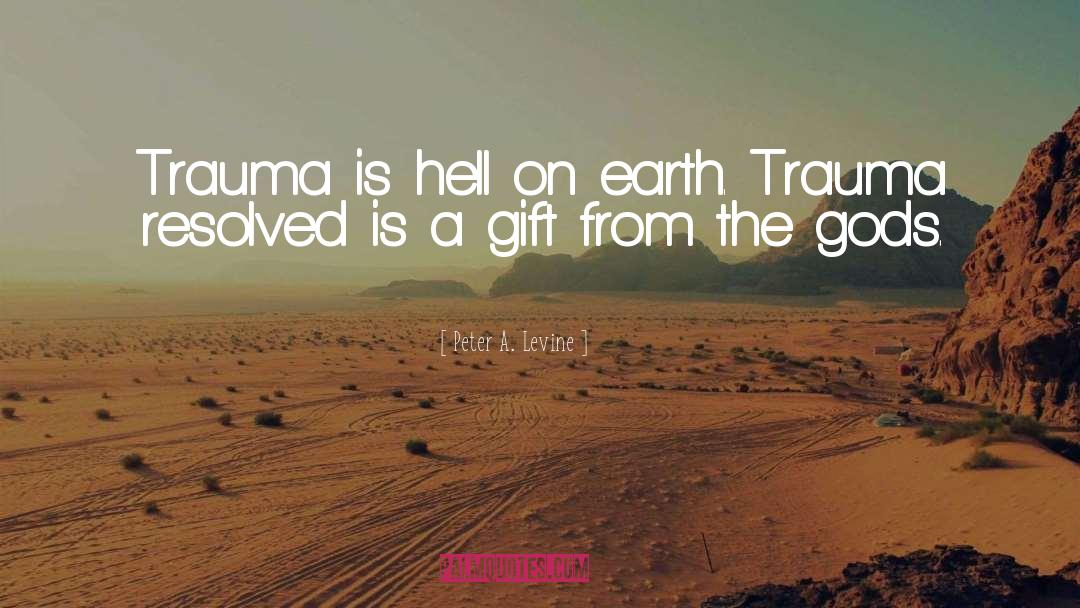
I have come to the conclusion that human beings are born with an innate capacity to triumph over trauma. I believe not only that trauma is curable, but that the healing process can be a catalyst for profound awakening - a portal opening to emotional and genuine spiritual transformation. I have little doubt that as individuals, families, communities, and even nations, we have the capacity to learn how to heal and prevent much of the damage done by trauma. In so doing, we will significantly increase our ability to achieve both our individual and collective dreams.
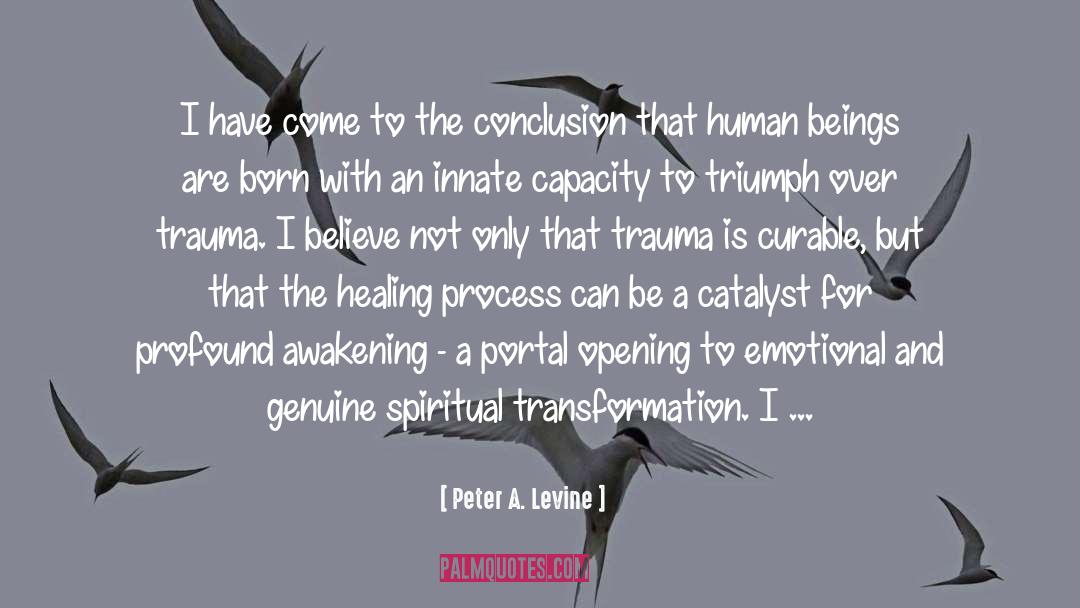
The first truth, Buddha taught his disciples, is that suffering is part of the human condition. If we simply try to avoid confronting painful experiences, there is no way to begin the healing process. In fact, this denial creates the very conditions that promote and prolong unnecessary suffering.
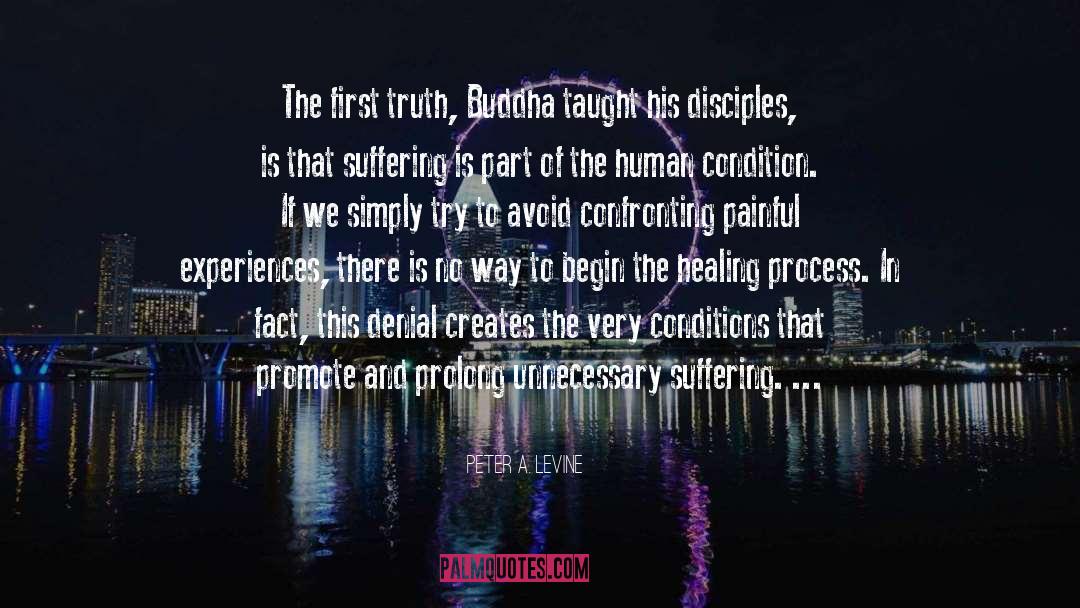
Trauma can be prevented more easily than it can be healed.
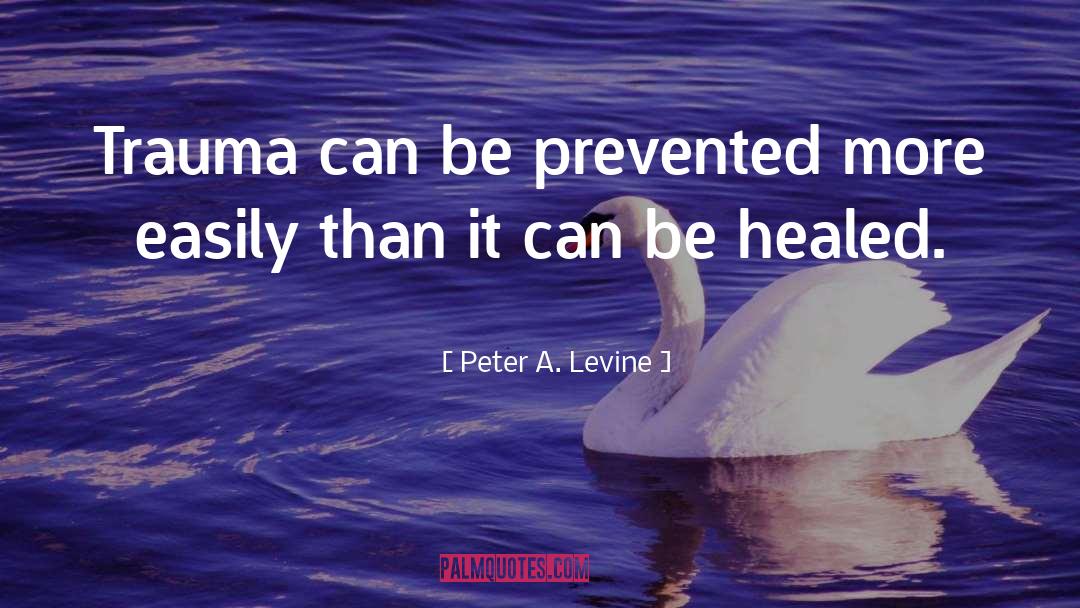
Physicians and mental health workers today don't speak of retrieving souls, but they are faced with a similar task - restoring wholeness to an organism that has been fragmented by trauma. Shamanistic concepts and procedures treat trauma by uniting lost soul and body in the presence of community. This approach is alien to the technological mind. However, these procedures do seem to succeed where conventional Western approaches fail.
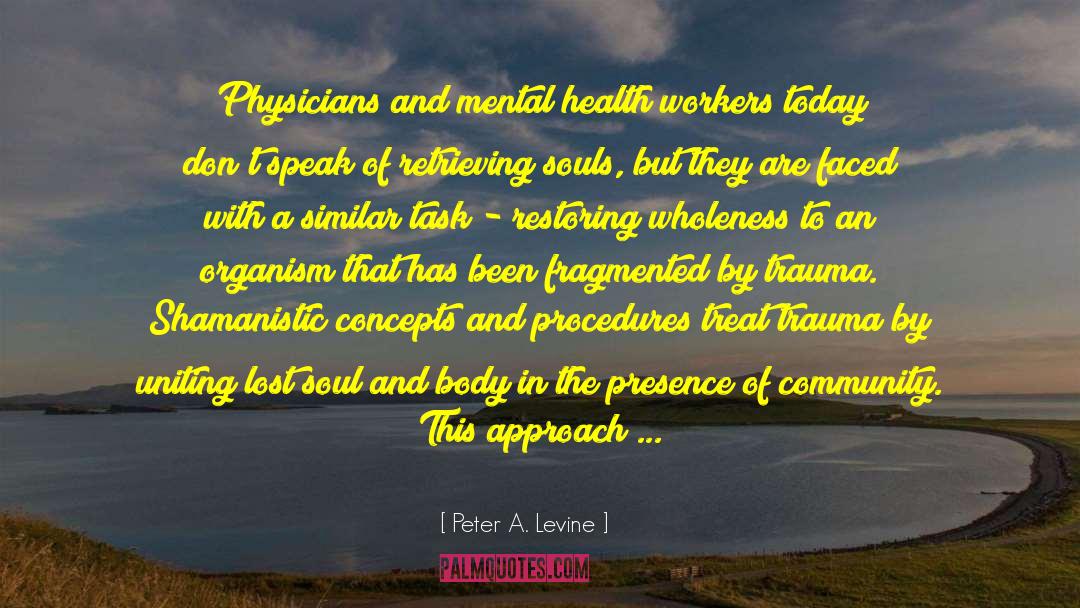
By listening to the "unspoken voice" of my body and allowing it to do what it needed to do; by not stopping the shaking, by "tracking" my inner sensations, while also allowing the completion of the defensive and orienting responses; and by feeling the "survival emotions" of rage and terror without becoming overwhelmed, I came through mercifully unscathed, both physically and emotionally. I was not only thankful; I was humbled and grateful to find that I could use my method for my own salvation.
While some people are able to recover from such trauma on their own, many individuals do not. Tens of thousands of soldiers are experiencing the extreme stress and horror of war. Then too, there are the devastating occurrences of rape, sexual abuse and assault. Many of us, however, have been overwhelmed by much more "ordinary" events such as surgeries or invasive medical procedures. Orthopedic patients in a recent study, for example, showed a 52% occurrence of being diagnosed with full-on PTSD following surgery.
Other traumas include falls, serious illnesses, abandonment, receiving shocking or tragic news, witnessing violence and getting into an
auto accident; all can lead to PTSD. These and many other fairly common experiences are all potentially traumatizing. The inability to rebound from such events, or to be helped adequately to recover by professionals, can subject us to PTSD - along with a myriad of physical and emotional symptoms.
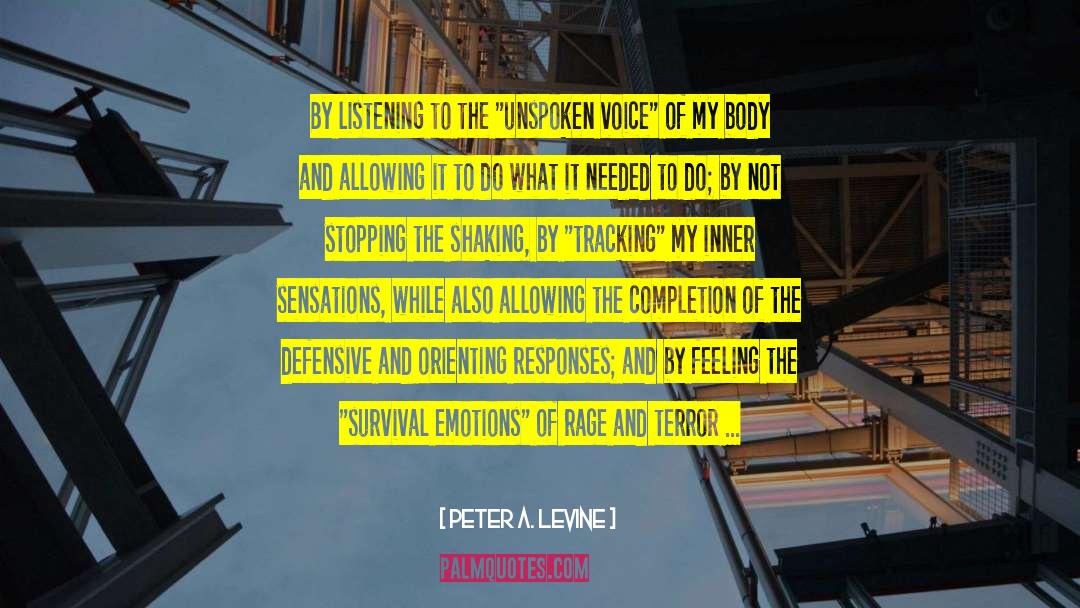
Who have been traumatized, this can be a monumental leap of faith, but we can recover from trauma; indeed, my experience assisting others to heal from trauma has shown me this recovery is innate.
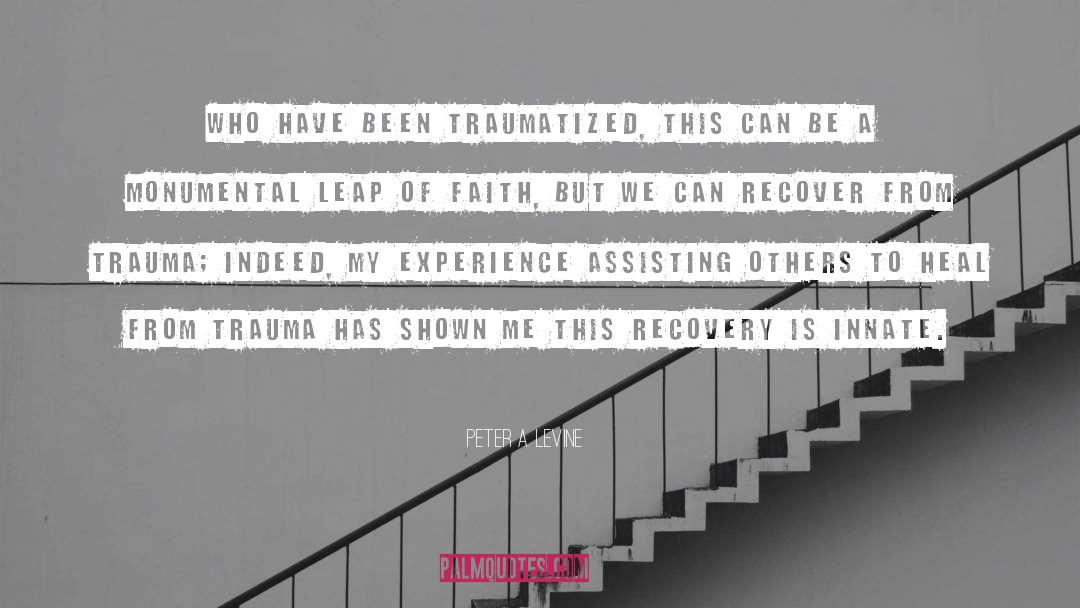
Resilient strength is the opposite of helplessness. The tree is made strong and resilient by its grounded root system. These roots take nourishment from the ground and grow strong. Grounding also allows the tree to be resilient so that it can yield to the winds of change and not be uprooted. Springiness is the facility to ground and 'unground' in a rhythmical way. This buoyancy is a dynamic form of grounding. Aggressiveness is the biological ability to be vigorous and energetic, especially when using instinct and force. In the immobility (traumatized) state, these assertive energies are inaccessible. The restoration of healthy aggression is an essential part in the recovery from trauma. Empowerment is the acceptance of personal authority. It derives from the capacity to choose the direction and execution of one's own energies. Mastery is the possession of skillful techniques in dealing successfully with threat. Orientation is the process of ascertaining one's position relative to both circumstance and environment. In these ways the residue of trauma is renegotiated.
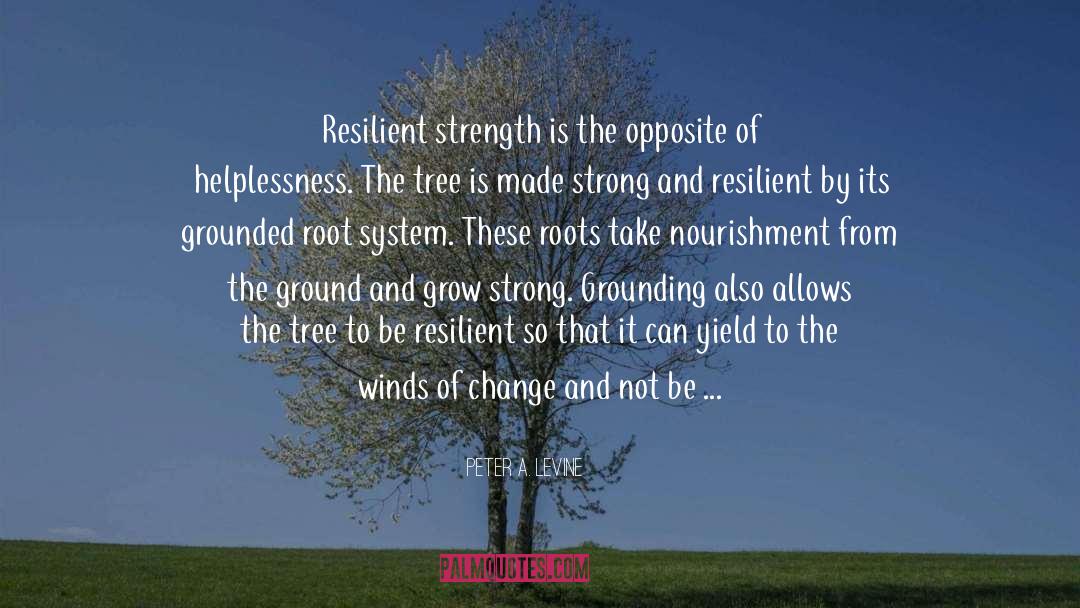
In order to stay healthy, our nervous systems and psyches need to face challenges and to succeed in meeting those challenges. When this need is not met, or when we are challenged and cannot triumph, we end up lacking vitality and are unable to fully engage in life. Those of us who have been defeated by war, abuse, accidents, and other traumatic events suffer far more severe consequences.
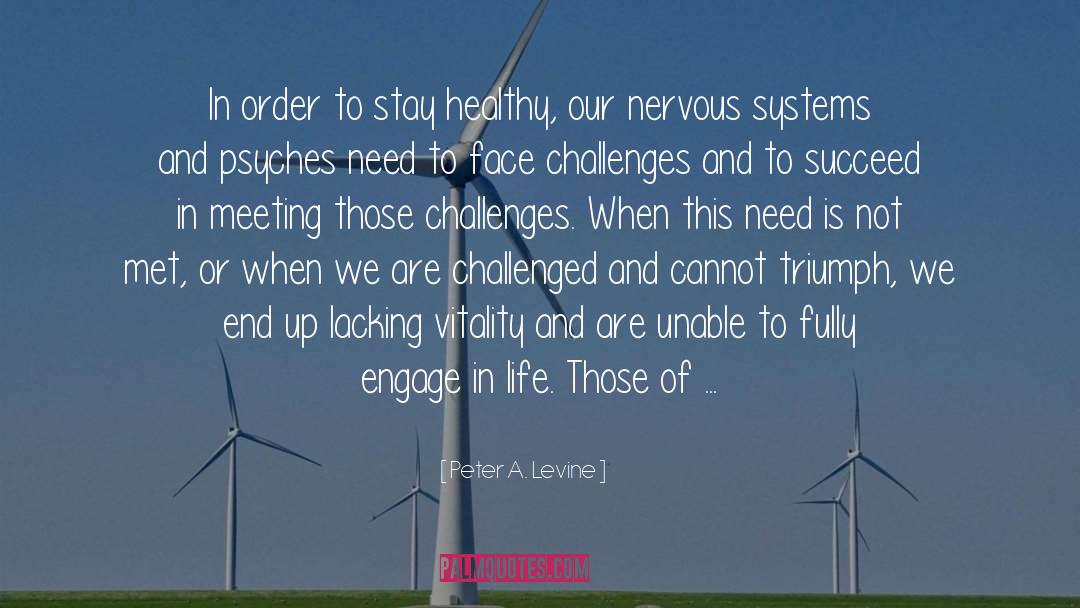
So, what role does memory play in the understanding and treatment of trauma? There is a form of implicit memory that is profoundly unconscious and forms the basis for the imprint trauma leaves on the body/mind. The type of memory utilized in learning most physical activities (walking, riding a bike, skiing, etc.) is a form of implicit memory called procedural memory. Procedural or "body memories" are learned sequences of coordinated "motor acts" chained together into meaningful actions. You may not remember explicitly how and when you learned them, but, at the appropriate moment, they are (implicitly) "recalled" and mobilized (acted out) simultaneously. These memories (action patterns) are formed and orchestrated largely by involuntary structures in the cerebellum and basal ganglia.
When a person is exposed to overwhelming stress, threat or injury, they develop a procedural memory. Trauma occurs when these implicit procedures are not neutralized. The failure to restore homeostasis is at the basis for the maladaptive and debilitating symptoms of trauma.
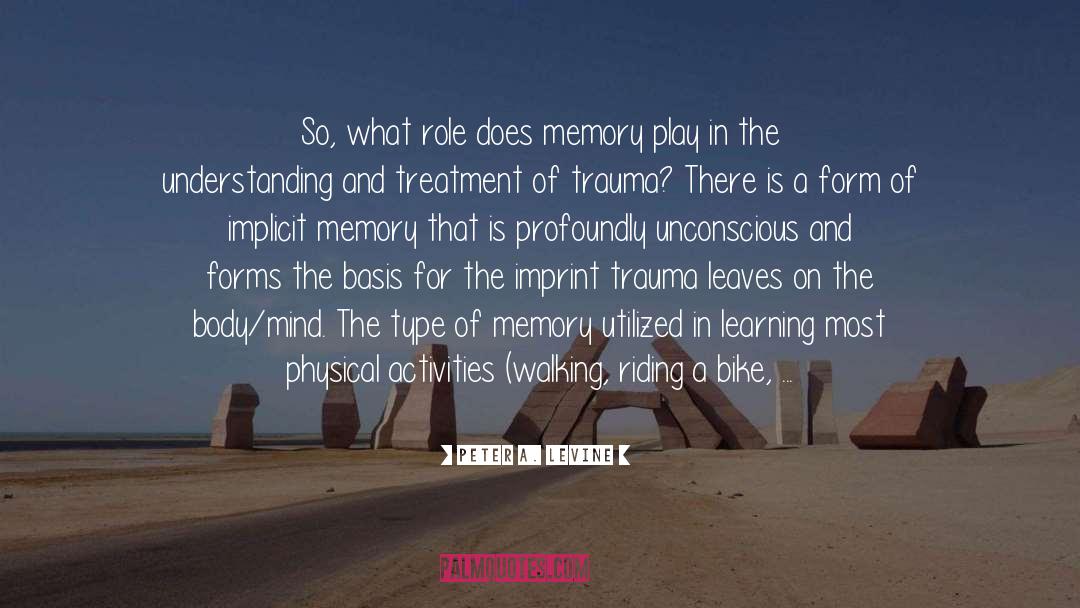
In many ways, the felt sense is like a stream moving through an ever-changing landscape. It alters its character in resonance with its surroundings. When the land is rugged and steep, the stream moves with vigor and energy, swirling and bubbling as it crashes over rocks and debris. Out on the plains, the stream meanders so slowly that one might wonder whether it is moving at all. Rains and spring thaw can rapidly increase its volume, possibly even flood nearby land. In the same way, once the setting has been interpreted and defined by the felt sense, we will blend into whatever conditions we find ourselves. This amazing sense encompasses both the content and climate of our internal and external environments. Like the stream, it shapes itself to fit those environments.
